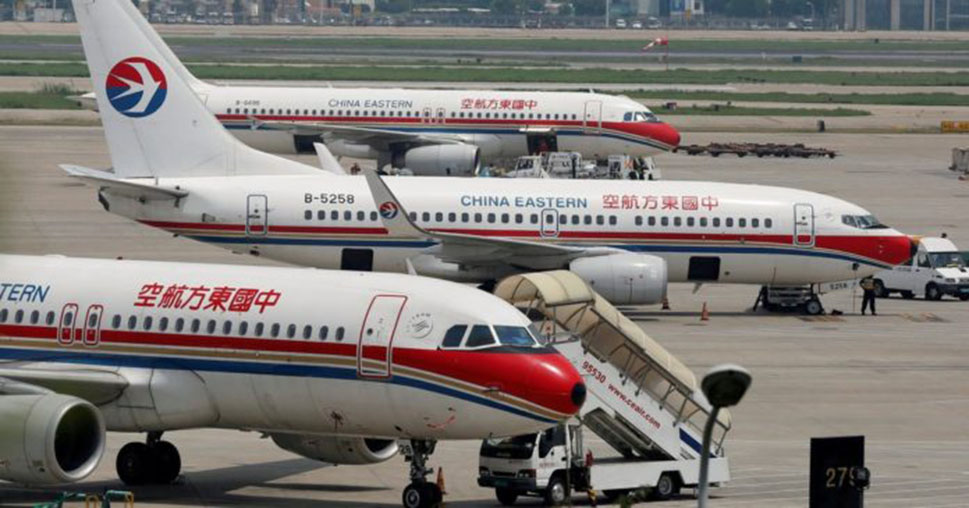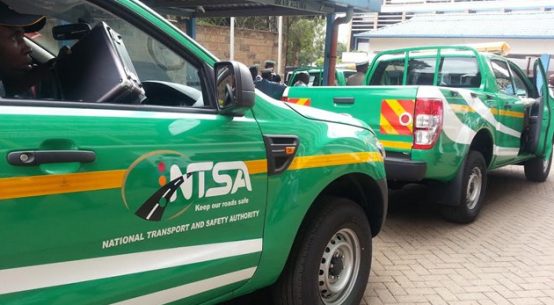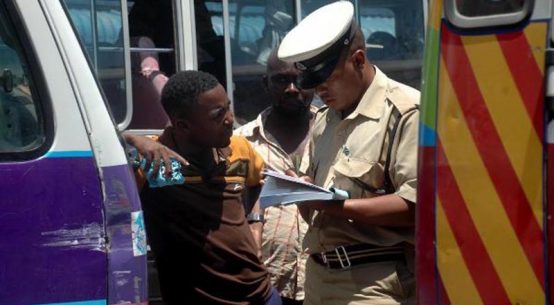
ChinaEastern jumbo jets
Taipei, Taiwan (NYT) – Tens of thousands of Taiwanese working in China are at risk of being unable to return home for the Lunar New Year in mid-February as a result of an escalating battle over airspace in the Taiwan Strait.
On Tuesday, the Chinese airlines China Eastern Airlines and Xiamen Air announced that they had canceled 176 flights intended to meet added demand during the holiday since they had yet to receive approval from Taiwan’s Civil Aeronautics Administration.

The agency said on Jan. 19 that it was denying the airlines permission for the flights because they were flying sensitive new routes in the Taiwan Strait that China began using without consulting Taiwan’s government. The move has been viewed in Taiwan as a show of disrespect, one that could heighten the risk of a dangerous incident and potentially provoke a crisis in the increasingly tense cross-strait relationship.
The new passenger routes come close to airspace used by Taiwanese airliners and military planes at a time when Chinese military drills encroaching on Taiwan’s airspace have become increasingly common.
Against this backdrop of heightened tensions, Taiwan’s armed forces conducted their annual live-fire military drills Tuesday highlighting Taiwan’s readiness to deal with the threat of invasion. Reconnaissance aircraft, F-16s, attack helicopters and tanks worked together in a simulated invasion scenario on the east coast of Taiwan’s main island.
In a statement released Tuesday morning about the dispute over the airspace, Taiwan’s presidential office said protecting the safety of all people flying across the strait was “a responsibility that cannot be abandoned.”
The statement called on Beijing to return to the consensus reached in talks over the airspace in 2015, urging a resolution of the dispute for “regional stability, cross-strait relations and flight safety.”
The People’s Republic of China claims Taiwan as its territory but has never administered it since the republic’s founding in Beijing in 1949. Taiwan is governed by the Republic of China government, which fled China to Taiwan in 1949 after losing to Mao Zedong’s communist forces in the Chinese civil war.
Taiwanese companies began investing and doing business in China in the 1980s, although direct commercial flights between China and Taiwan did not take place until 2008; citizens on either side had to detour through third destinations like Hong Kong, Macau or Okinawa in southern Japan.
The Lunar New Year is the most important holiday of the year on both sides of the strait, and expatriate workers traditionally return home to spend the time with their families.
The cancellations of the 176 flights serving Lunar New Year traffic will probably force Taiwanese determined to get home to scramble to book scarce flights on short notice.
Despite waxing and waning diplomatic tensions, China and Taiwan are closely linked economically. Hundreds of thousands of Taiwanese live and work in China. Many of them work at Taiwanese companies with large-scale operations in China, such as Foxconn, an electronics maker, which employs more than a million Chinese.
For more Logistics News, Follow us on TWITTER Follow us on FACEBOOK
The two airlines that canceled the flights will probably suffer significant economic losses. China Eastern said it would cancel 106 round-trip flights for close to 40,000 passengers. Xiamen Air said it would cancel 70 extra flights that had been planned.
“This move has harmed the shared rights and interests of our company and customers,” China Eastern said. Xiamen Air said the step had “seriously hurt the feelings of people on both sides of the strait.”








